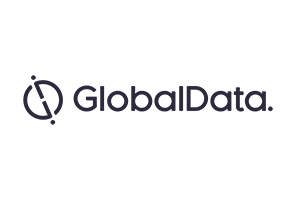
Is it possible to treat, and more importantly to cure, breast cancer in patients without the use of chemotherapy? In the age of personalized therapy and targeted cancer drugs, this question is becoming increasingly common. In patients with early stage cancer, there is a significant emphasis on maintaining quality of life and avoiding any chemotherapy-related toxicities that might linger, causing health problems even after the cancer is gone.
This is especially relevant in breast cancer, where the introduction of Roche/Genentech’s Herceptin (trastuzumab) revolutionized treatment for patients with HER2-positive breast cancer. When added to standard treatment, the HER2-targeted antibody treatment effectively halved the risk of disease progression in metastatic patients and improved disease-free survival in early breast cancer patients by 40–50%. With the introduction of a second HER2-targeting antibody from Roche/Genentech, Perjeta (pertuzumab), into the combination treatment, patient survival has been increased even further.
However, chemotherapy still forms the core part of treatment for the majority of breast cancer patients. While new targeted therapies have been effective, they are given in addition to current chemotherapy regimens. To illustrate, Herceptin and chemotherapy have such highly synergistic anti-tumor activity that giving Herceptin on its own would result in lower survival by comparison, making it less appealing as a monotherapy.
The new class of CDK4/6 inhibitors, which are being developed by a number of pharma companies, could hold the key to a chemotherapy-free treatment regimen in breast cancer. The first to market inhibitor, Ibrance (palbociclib), was developed by Pfizer and is used in combination with hormonal agents in hormone-sensitive breast cancer. Ibrance has already demonstrated significant activity, and in clinical trials for HER2-negative, hormone-sensitive disease, it delayed disease progression by an extra ten months on average. Importantly, Ibrance exerts a chemotherapy-like effect on tumor cells without the associated chemotherapy-related toxicity.
PATINA, a new trial being run by Alliance Foundation Trials in collaboration with Pfizer, is set to begin this month, and will test how effective Ibrance is in a chemotherapy-free treatment regimen for HER2-positive breast cancers. This trial will test the effectiveness of Ibrance in combination with Herceptin, Perjeta, and hormonal therapy in the first-line metastatic setting. If the PATINA trial is successful, this could be a game-changing event in breast cancer.
See Also:
However, while a completely chemotherapy-free treatment for breast cancer might be a real possibility, it is still some ways away. Clinical trials take time to produce the kind of data that could show any long-term benefit in breast cancer. Given the current state and pace of drug development in this space, the development of chemotherapy-free treatments may not happen in the near future, but could only be a matter of time.
How well do you really know your competitors?
Access the most comprehensive Company Profiles on the market, powered by GlobalData. Save hours of research. Gain competitive edge.

Thank you!
Your download email will arrive shortly
Not ready to buy yet? Download a free sample
We are confident about the unique quality of our Company Profiles. However, we want you to make the most beneficial decision for your business, so we offer a free sample that you can download by submitting the below form
By GlobalData



Related Company Profiles
Alliance Foundation Trials LLC